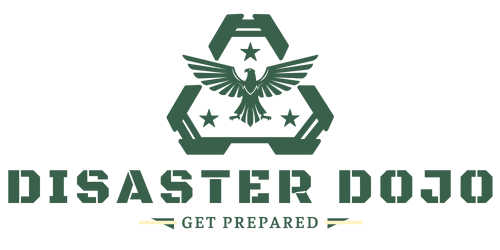In today’s unpredictable world, many individuals have turned to prepping as a means of preparing for various emergencies and natural disasters. However, while prepping has its advantages, it is important to also consider the potential risks and challenges that come with this lifestyle. From financial strain and storage limitations to the psychological impact of constantly being on high alert, these factors can present unique obstacles to those who choose to embrace the prepper mindset. By understanding these potential risks, individuals can better navigate the world of prepping and ensure they are truly prepared for whatever may come their way.

Physical Risks
Inadequate skills and knowledge
When it comes to prepping, having the necessary skills and knowledge is crucial. Without proper training and understanding, you may find yourself ill-equipped to handle emergencies effectively. This can put you and your loved ones at risk, as you may not know how to properly administer first aid, find clean water, or secure basic necessities in times of crisis. It is important to invest time and effort into learning essential survival skills and staying updated on the latest preparedness techniques.
Physical injuries and accidents
Engaging in prepping activities, such as camping, survival training, or even just storing supplies, comes with a risk of physical injuries and accidents. While these risks exist in our day-to-day lives as well, they can become more prevalent in emergency situations. It’s important to take precautionary measures, such as using safety equipment when necessary, practicing proper techniques, and being aware of potential hazards. Being prepared also means being mindful of the physical risks that may arise during an emergency and taking steps to mitigate them.
Illness and medical emergencies
During a disaster or crisis situation, access to medical care may be limited or even completely cut off. This can present a significant risk, especially for those who rely on medication or have pre-existing medical conditions. If you or a family member has specific medical needs, it is crucial to plan ahead and ensure you have an adequate supply of medication and necessary medical equipment. Additionally, having basic medical knowledge and first aid skills can be invaluable in treating minor injuries and illnesses when professional help is not available.
Dependency on medication and supplies
One of the challenges of prepping is the need to rely on medication and supplies that may not be easily accessible during an emergency. It’s important to note expiration dates and rotate your stockpile to ensure that items remain usable when you need them. Additionally, if you have family members with specific medical conditions, you may need to stockpile specialized medication or equipment, which can be costly and require extra planning. Being dependent on these supplies means taking extra care to manage and maintain them properly.
Financial Risks
Cost of prepping
Prepping can involve a significant financial investment. Stockpiling food, water, medical supplies, and other essential items can quickly add up in terms of expenses. Depending on the extent of your preparations and the duration you are planning for, the costs can be substantial. It’s important to create a budget and prioritize your prepping needs to ensure you are making the most effective use of your financial resources. Finding cost-effective alternatives and purchasing items gradually over time can help alleviate the financial burden associated with prepping.
Loss of investments
While it is important to be prepared for emergencies, it is also necessary to balance your prepping efforts with other financial responsibilities, such as savings and investments. Putting all your resources into prepping can leave you vulnerable to financial losses if the anticipated emergency does not occur or is less severe than expected. It’s crucial to maintain a diversified financial portfolio and consider the potential return on investment when allocating funds to prepping.
Economic collapse
One of the potential risks preppers often prepare for is an economic collapse. While this scenario may seem rare or extreme, history has shown that economic crises can and do happen. In such situations, the value of money can decrease significantly, leading to inflation and a loss of purchasing power. Prepping for economic collapse involves taking measures to diversify your assets, investing in tangible goods like gold and silver, and having alternative forms of currency, such as bartering items or cryptocurrencies.
Inflation and devaluation
Even outside the scope of an economic collapse, inflation and devaluation of currency can have serious implications for preppers. The rising cost of goods and services can erode the purchasing power of your savings, making it more difficult to afford the necessary supplies for the long term. This risk highlights the importance of having a well-thought-out financial plan that takes into account potential economic fluctuations and inflationary pressures. Diversifying your investments and considering assets that tend to hold value during inflationary periods can help safeguard your financial stability.

Emotional and Psychological Challenges
Anxiety and stress
Preparing for emergencies can be a stressful endeavor. The uncertainty surrounding potential disasters, along with the responsibility of ensuring the well-being of yourself and your loved ones, can lead to increased anxiety and stress. It’s important to prioritize self-care and find healthy coping mechanisms to manage these emotions. Engaging in activities like meditation, exercise, or spending quality time with loved ones can help alleviate stress and promote mental well-being.
Fear and paranoia
Prepping can sometimes lead to heightened levels of fear and paranoia. Constantly being on guard and prepared for potential threats can create a sense of unease that permeates daily life. It is essential to strike a balance between preparedness and living a fulfilling life. Maintaining a healthy perspective, seeking support from like-minded individuals, and focusing on the positive aspects of preparedness can help alleviate unnecessary fear and paranoia.
Social isolation
In some cases, prepping can lead to social isolation. If your family, friends, or community do not share similar views or preparedness priorities, you may encounter resistance or skepticism. This can lead to a sense of isolation or the feeling of being misunderstood. It’s important to find a support network of like-minded individuals who can provide guidance and understanding. Engaging in community preparedness groups or online forums can help bridge the social gap and foster a sense of belonging.
Mental health issues
The challenges of prepping, including the emotional and psychological strain, can potentially worsen or trigger mental health issues. It’s important to assess your mental well-being regularly and seek professional help if needed. Engaging in self-care activities, maintaining healthy relationships, and seeking support are essential to maintaining good mental health. Prepping should enhance your sense of security and well-being, rather than exacerbating mental health concerns.
Social Risks
Resistance and skepticism from family and friends
Prepping can sometimes be met with resistance or skepticism from family and friends who do not share the same level of preparedness mindset. This can create tension and strain relationships. It’s important to approach discussions with empathy and understanding, focusing on the shared desire for safety and well-being. Educating loved ones about the importance of preparedness and involving them in the planning process can help alleviate concerns and foster a sense of unity.
Social stigma and judgment
Prepping can also be subject to social stigma and judgment from those who view it as unnecessary or extreme. Being prepared for emergencies is often seen as a fringe activity, leading to misconceptions and negative assumptions. It’s important to remember that preparedness is a personal decision, and staying true to your beliefs and priorities is essential. Surrounding yourself with a supportive community of like-minded individuals can help counteract social stigma and create a sense of validation.
Conflicts and competition for resources
In the event of a significant disaster or crisis, competition for resources can arise within communities. Scarcity can lead to conflicts and difficult decisions regarding the fair and equitable distribution of essential supplies. It’s important to approach these situations with empathy and considerate decision-making. Developing relationships and networks within your community that focus on cooperation and collective well-being can help alleviate potential conflicts and ensure a more harmonious response to crises.
Ethical dilemmas in decision-making
Prepping requires making difficult decisions, especially in situations where resources are limited. Ethical dilemmas may arise when determining who should receive assistance or how to allocate resources. It’s important to establish a clear set of principles and values that guide your decision-making process. Prioritizing the well-being of vulnerable individuals, collaboration, and fairness can help navigate ethical challenges and ensure a more inclusive response to emergencies.

Logistical Challenges
Storage limitations
One of the practical challenges of prepping is finding adequate storage space for all your supplies. Depending on the extent of your preparations, stockpiling food, water, and other essentials can take up a significant amount of space. It’s important to optimize your storage solutions by utilizing space-saving techniques and organizing your supplies efficiently. This may involve utilizing under-bed storage, using vertical shelf space, or even considering off-site storage options for non-perishable items.
Rotating and maintaining supplies
To ensure the effectiveness and safety of your prepping supplies, regular rotation and maintenance are essential. Perishable items such as food and medication need to be checked for expiration dates and replaced accordingly. It’s important to establish a system or schedule to keep track of expiration dates and regularly replenish your supplies. Additionally, maintaining proper storage conditions, such as temperature control and protection from moisture or pests, is crucial in maximizing the longevity of your supplies.
Finding reliable sources
When it comes to prepping, finding reliable sources for information, supplies, and support can be challenging. With the abundance of information available online, it can be difficult to discern what is accurate and trustworthy. It’s important to invest time in researching reputable sources, engaging in community forums, and seeking recommendations from experienced preppers. Building relationships with reliable suppliers and staying up to date with the latest news and developments can help ensure you have access to the resources you need.
Transportation and relocation
In certain emergency situations, such as natural disasters or civil unrest, the need to evacuate or relocate may arise. This presents logistical challenges, especially if you have a significant amount of supplies and equipment to transport. It’s important to have a plan in place, including a designated meeting point for your family and a means of transportation. Regularly reviewing and updating your evacuation plan, considering alternate routes, and preparing emergency kits for transportation can help mitigate the challenges associated with relocation.
Planning and Preparedness Pitfalls
Overconfidence and underestimation
A common pitfall in prepping is overconfidence and underestimating the potential risks and challenges. It’s easy to fall into a mindset of thinking you are fully prepared, only to realize that there are areas you overlooked or underestimated. Regularly reassessing your preparations, seeking feedback from experienced preppers, and identifying areas for improvement are crucial in avoiding complacency. It’s important to remain humble and adaptable in your approach to preparedness.
Difficulty in predicting and preparing for specific scenarios
Preparing for every possible scenario can be a daunting task. The sheer number of potential emergencies makes it challenging to plan for every eventuality. In such cases, focusing on general principles and skills that can be applied across different scenarios is essential. Developing a core set of preparedness skills, such as first aid, water purification, and navigation, can provide a foundation that can be adapted to various situations. Additionally, keeping informed about current events and staying updated on potential risks in your area can help tailor your preparations to specific threats.
Balancing short-term and long-term needs
Prepping involves striking a balance between short-term emergency preparedness and long-term sustainability. While it’s essential to have immediate supplies and resources readily available, it’s also important to think about long-term self-sufficiency. This includes considerations such as sustainable food production, renewable energy sources, and acquiring necessary skills for self-reliance. Planning for the long term requires a holistic approach that takes into account both immediate needs and future sustainability.
Adapting plans to changing circumstances
Flexibility and adaptability are key qualities in successful prepping. Circumstances can change, and your preparedness plans may need to be adjusted accordingly. It’s important to regularly reassess and update your plans based on new information or changing circumstances. This includes staying informed about emerging threats, adjusting stockpile quantities based on changing family dynamics, and revisiting evacuation routes or meeting points as needed. Being open to change and adjusting your plans accordingly will ensure that your preparations remain effective and relevant.
Legal and Regulatory Constraints
Ownership and licensing of firearms
For individuals who choose to include firearms in their preparedness plan, legal and regulatory constraints can pose challenges. Depending on your jurisdiction, there may be specific licensing requirements, waiting periods, and regulations surrounding the ownership and use of firearms. It is essential to understand and comply with these laws to avoid legal issues. Additionally, proper training in firearm safety and responsible use is crucial to ensure the safety of yourself and those around you.
Restrictions on certain storage practices
Some jurisdictions may have restrictions or regulations on certain storage practices related to prepping. This can include limitations on the amount or types of materials you can store, as well as safety requirements for storing hazardous or flammable items. It’s important to familiarize yourself with local regulations and comply with any requirements to ensure your safety and avoid legal complications. If in doubt, consulting with local authorities or experts in the field can provide guidance on proper storage practices.
Legal implications of self-defense actions
In situations where self-defense becomes necessary during an emergency, there may be legal implications to consider. The laws surrounding self-defense can vary depending on your jurisdiction, and it’s crucial to understand the specific guidelines and limitations in your area. This includes knowing when the use of force is legally justified and understanding the potential consequences of your actions. Seeking legal advice and understanding your rights and responsibilities can help navigate these complexities and ensure you are prepared both physically and legally.
Compliance with government regulations
Prepping for emergencies does not exempt individuals from complying with government regulations. It’s important to understand and comply with any regulations or requirements related to emergency preparedness, such as building codes, zoning restrictions, or permits for certain activities. Failure to comply with these regulations can result in legal consequences and may hinder your ability to fully implement your preparedness plans. Staying informed about current regulations and seeking guidance when necessary is essential to ensure legal compliance.
Ethical Considerations
Allocation of resources in emergencies
During emergencies, the allocation of resources can become a significant ethical challenge. The limited availability of essential supplies may force individuals to make difficult decisions regarding who receives assistance and resources. It’s important to approach these situations with fairness, empathy, and respect for human dignity. Considering vulnerable populations and collaborating with community members and organizations can help ensure a more equitable distribution of resources.
Determining the limits of self-preservation
Prepping raises ethical questions about the limits of self-preservation. While it’s natural to prioritize one’s own safety and that of immediate family members, it’s important to consider the broader ethical responsibilities to the community and society. Understanding when to extend assistance to others and when to focus on personal survival can be challenging. Establishing clear ethical guidelines and values that prioritize both individual and collective well-being can guide decision-making in times of crisis.
Ethics of defense and protection
Prepping often involves considerations about self-defense and protection. It’s important to approach this aspect with a strong foundation of ethical grounding. Understanding your legal rights and obligations, as well as the moral implications of using force, is essential. Engaging in proper training, seeking guidance from legal and ethical experts, and adhering to non-violent conflict resolution strategies can help navigate the ethical complexities of self-defense.
Responsible disposal of waste and environmental impact
Prepping involves stockpiling supplies and resources, which can generate waste and have an environmental impact. Proper waste disposal is essential to minimize harm to the environment and maintain sanitation during emergencies. It’s important to familiarize yourself with local waste management regulations and guidelines, using eco-friendly and sustainable practices whenever possible. Responsible disposal of waste ensures the protection of our natural resources and preserves the environment for future generations.
Challenges for Families and Dependents
Reluctance or resistance from family members
Prepping may not be a shared priority among all family members, leading to reluctance or resistance. It’s important to communicate openly and honestly with your loved ones about the reasons for prepping and the potential benefits it offers. Engaging in constructive conversations, addressing concerns, and involving family members in the planning process can help alleviate resistance and build consensus.
Caring for infants, elderly, or disabled individuals
Families with infants, elderly individuals, or disabled members face additional challenges in emergency preparedness. These vulnerable populations have unique needs that must be considered when developing prepping plans. Ensuring an adequate supply of medication, specialized equipment, and necessary support is crucial. Developing an emergency communication plan and identifying resources within the community that can provide assistance specific to these populations is essential.
Maintaining a sense of normalcy and routine
In times of crisis, maintaining a sense of normalcy and routine can be important for mental and emotional well-being, especially for children. Prepping can disrupt normal routines, and it’s essential to find ways to provide stability and a sense of normalcy in emergency situations. This can be achieved through establishing a routine for daily activities, engaging in familiar hobbies or leisure activities, and prioritizing quality time with family members.
Ensuring emotional well-being
During a crisis, emotional well-being becomes paramount, particularly for family members who may be experiencing heightened stress or anxiety. Open communication, fostering a supportive environment, and providing emotional support are essential for maintaining the mental health of family members. Encouraging regular check-ins, sharing feelings and concerns, and seeking professional help when needed are crucial in ensuring the emotional well-being of everyone involved.
Post-Disaster Challenges
Rebuilding and recovery efforts
One of the major challenges after a disaster is the process of rebuilding and recovery. This can involve physical, emotional, and financial strains. It’s important to approach the recovery process with resilience, patience, and a sense of community collaboration. Engaging with local authorities, aid organizations, and support networks can provide valuable resources and assistance during the post-disaster phase.
Trauma and PTSD
Experiencing a disaster or crisis can result in trauma and post-traumatic stress disorder (PTSD) for some individuals. It’s crucial to recognize the signs of trauma and seek professional help when needed. Developing coping mechanisms, engaging in therapy or counseling, and participating in support groups can aid in the healing and recovery process. Supporting individuals who have experienced trauma is vital in ensuring their well-being and facilitating their journey towards resilience.
Dealing with loss and grief
In the aftermath of a disaster, loss and grief are inevitable for many individuals and communities. The emotional toll can be overwhelming, and it’s important to provide support and resources to those who have experienced loss. Engaging in grief counseling, participating in memorial services or ceremonies, and fostering a compassionate and empathetic environment can aid in the healing process. Recognizing the need for bereavement support and providing assistance to those who are grieving is essential in post-disaster recovery efforts.
Long-term sustainability
Sustainability is a key consideration in post-disaster recovery efforts. It’s important to focus not only on immediate relief and rebuilding but also on long-term sustainability. This includes considerations of environmental impact, economic stability, and social equity. Implementing sustainable practices, promoting community resilience, and investing in long-term infrastructure and development are crucial in ensuring a sustainable and thriving future for affected individuals and communities.
In conclusion, prepping for emergencies carries its own set of risks and challenges. From physical risks to financial implications, emotional strains to social difficulties, there are various aspects to consider when engaging in preparedness efforts. By being aware of these potential challenges and taking proactive measures to address them, you can better navigate the complexities of prepping and ensure that you and your loved ones are prepared for whatever may come your way. Remember, preparedness is a journey, and it’s important to continue learning, adapting, and collaborating with others on this shared path towards resilience and security.


